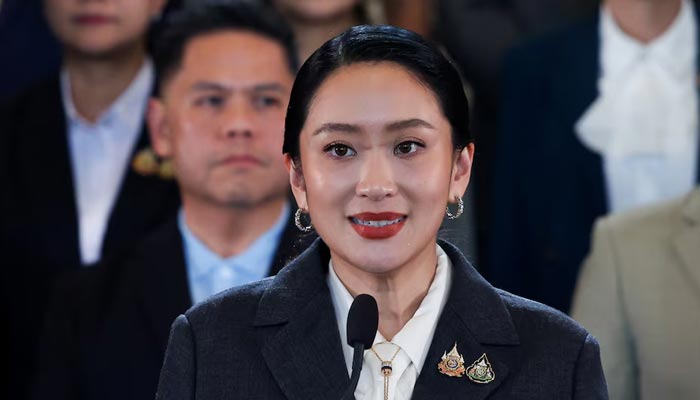Select Language:
Thailand’s Constitutional Court has dismissed Prime Minister Paetongtarn Shinawatra from office due to an ethics violation after just one year in power, marking another setback for the Shinawatra political dynasty and potentially leading to increased political instability.
Paetongtarn, Thailand’s youngest prime minister, becomes the sixth leader associated with or supported by the wealthy Shinawatra family to be ousted by the military or judiciary during a turbulent 20-year struggle for control among Thailand’s elite factions.
The court’s ruling cited a leaked phone call from June in which Paetongtarn appeared to show deference to Cambodia’s former leader, Hun Sen, during a period of heightened tension with Cambodia that later escalated into a five-day border fight. The verdict states her actions compromised ethics, damaged national reputation, and eroded public trust.
This decision opens the path for parliamentary elections to select a new prime minister, though the process may be drawn out. With Paetongtarn’s Pheu Thai party losing leverage, it faces challenges maintaining a fragile coalition with a narrow majority.
In a 6-3 vote, the court found that Paetongtarn prioritized her personal interests over national interests, undermining diplomatic relations and public confidence. The court remarked that her behavior, seemingly aligned with Cambodia, suggested she was willing to act according to external influences.
The ruling ends the political career of Paetongtarn, the daughter of influential tycoon Thaksin Shinawatra, who rose rapidly in political prominence after her predecessor Srettha Thavisin was dismissed a year ago. Paetongtarn, 39, has apologized for the leaked call, claiming her actions aimed to prevent conflict.
She is the fifth Thai prime minister to be ousted by the Constitutional Court in the past 17 years, highlighting the court’s central role amid ongoing power struggles between Shinawatra-supported governments and conservative, royalist military factions.
Attention now turns to who will replace her, with Thaksin likely to be deeply involved as various parties negotiate to keep Pheu Thai leading the coalition. Deputy Prime Minister Phumtham Wechayachai and the current cabinet will govern on a temporary basis until a new prime minister is elected, with no specific timeline set.
Candidates eligible for the position include five individuals, one from Pheu Thai—77-year-old Chaikasem Nitisiri, a former attorney general with limited executive experience—alongside retired former Prime Minister Prayuth Chan-ocha, who led a military coup in 2014, and Anutin Charnvirakul, who previously withdrew his party from the coalition over the phone call incident.
This political upheaval exacerbates Thailand’s challenges amid a sluggish economy, projected to grow just 2.3% this year, and ongoing frustrations over stalled reforms. A Pheu Thai-led government would likely hold only a slim majority and face frequent opposition calls for early elections.
According to political analyst Stithorn Thananithichot of Chulalongkorn University, assembling a new government could be a protracted and complex process, with Pheu Thai at a disadvantage due to limited bargaining power among other parties.







